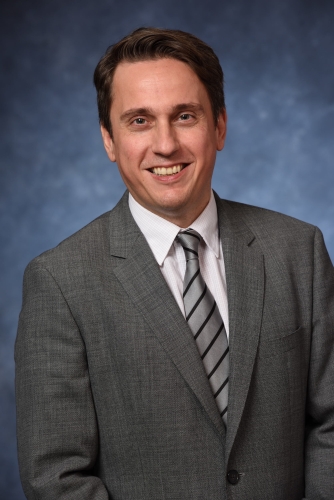Computational Deglutition
A human body comprises of several physiological systems that carry out specific functions necessary for daily living. Traumatic injuries, diseases and aging negatively impact human functions, which can cause a decreased quality of life and many other socio-economical and medical issues. Accurate models of human functions are needed to propose interventions and treatments that can restore deteriorated human functions. Therefore, our research aims to develop novel data analytics approaches that can accurately assess swallowing functional losses due to aging and neurological disorders. Swallowing is a sensorimotor activity by which food, liquids, and saliva pass from the oral cavity to the stomach. It is one of the most complex sensorimotor functions due to the high level of coordination needed to accomplish the swallowing task over a very short period of one to two seconds. Dysphagia (swallowing difficulties) refers to any swallowing disorder caused by a variety of neurological conditions (e.g., stroke, cerebral palsy, Parkinson's disease), head and neck cancer, genetic syndromes, and iatrogenic conditions or trauma. When not effectively treated, dysphagia can cause malnutrition, dehydration, failure of the immune system, psycho-social degradation, and in general, a decreased quality of life. There is a widespread need for signal and image processing algorithms that can help clinicians in the management of dysphagia. Therefore, a recently proposed field called computational deglutition is a collaboration between clinicians and the signal/image processing community aimed at the development of clinically relevant algorithms that will aid clinicians during the assessment and treatment of swallowing disorders. In this talk, I will overview the new field, and some of its recent advances.
Date and Time
Location
Hosts
Registration
- Date: 10 Sep 2019
- Time: 10:30 PM UTC to 12:00 AM UTC
-
 Add Event to Calendar
Add Event to Calendar
- 3700 O'Hara Street
- Pittsburgh, Pennsylvania
- United States 15261
- Building: Benedum Hall
- Room Number: 1235
- Click here for Map
- Contact Event Host
- Co-sponsored by CH02079 - Pittsburgh Section Jt Chapter (SP01/CS23) and CH02142 - Pittsburgh Section Chapter (EMB18)
- Starts 19 August 2019 02:27 AM UTC
- Ends 10 September 2019 04:00 PM UTC
- No Admission Charge
- Menu: Meat, No meat
Speakers
 Ervin Sejdić
Ervin Sejdić
Dr. Ervin Sejdić received B.E.Sc. and Ph.D. degrees in electrical engineering from the University of Western Ontario, London, Ontario, Canada in 2002 and 2008, respectively. From 2008 to 2010, he was a postdoctoral fellow at the University of Toronto with a cross-appointment at Bloorview Kids Rehab, Canada’s largest children’s rehabilitation teaching hospital. From 2010 until 2011, he was a research fellow at Harvard Medical School with a cross-appointment at Beth Israel Deaconess Medical Center. From his earliest exposure to research, he has been eager to contribute to the advancement of scientific knowledge through carefully executed experiments and ground-breaking published work. This has resulted in co-authoring over 130 publications. In February 2016, President Obama named Dr. Sejdić as a recipient of the Presidential Early Career Award for Scientists and Engineers. In 2017, Dr. Sejdić was awarded the National Science Foundation CAREER Award. In 2018, he was awarded the Chancellor’s Distinguished Research Award at the University of Pittsburgh. Dr. Sejdić is the editor-in-chief of Biomedical Engineering Online, an area editor for the IEEE Signal Processing Magazine, an associate editor for IEEE Transactions on Biomedical Engineering and Digital Signal Processing. Dr. Sejdić’s passion for discovery and innovation drives his constant endeavors to connect advances in engineering to society’s most challenging problems. Hence, his research interests include biomedical signal processing, gait analysis, swallowing difficulties, advanced information systems in medicine, rehabilitation engineering, assistive technologies and anticipatory medical devices.
